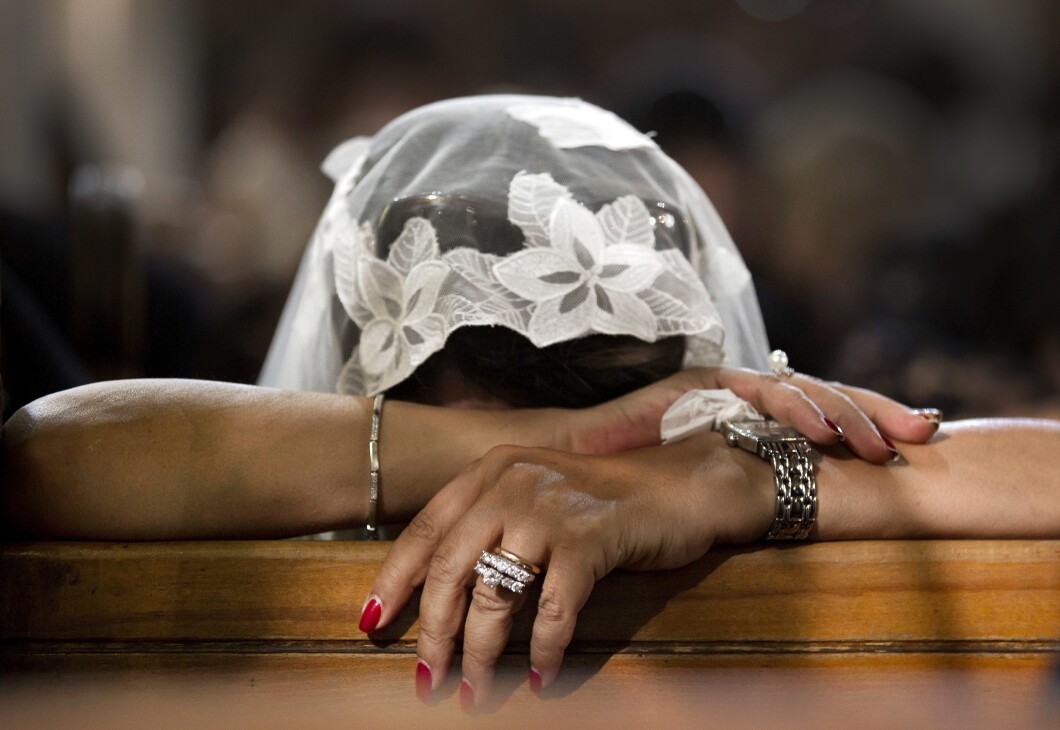
A group formed to help persecuted Christians is trying a new approach, working with Muslim civil society groups to better their conditions and increase cooperation.
Amid the rising persecution of Christians worldwide, the Philos Project was created with the intent of assisting in a way outside of the typical approach, which is to evacuate Christian groups under threat. Instead of evacuating Christians from their native communities, often where they’ve lived since the centuries immediately following the birth of Christ, Philos aims to help facilitate the creation of conditions that will allow them to stay. The organization aims to achieve this by working through civil society groups in Muslim countries, and through diplomacy.
Christians are the most persecuted religious group worldwide, with that persecution rising in several regions, particularly the Middle East. The Christian advocacy group Open Doors documented 5,898 Christians who were murdered worldwide for their faith in 2022 alone, along with over 10,000 who were kidnapped or detained without trial. Roughly 360 million Christians, one in seven of all believers, currently live in countries where persecution is significant.

THE WEST MUST REMEMBER PERSECUTION IS A DAILY REALITY FOR MANY CHRISTIANS ACROSS THE WORLD
Founder Robert Nicholson was surprised with the positive reception with his new approach he has received from Muslims in the region. He told the Washington Examiner that when approached in a non-hostile manner, Muslims in the region are far more often than not willing to cooperate with the group.
“We have been very surprised, pleasantly so, with our response from Arab and Muslim states. We have been very transparent,” he said.
The model of the organization is to approach Muslim civil society groups, asking for cooperation, while stressing that, “this is not a weapon through which to cudgel them, or scold them… This is an effort to make Christian populations sustainable,” he said. The goal is to “better integrate [Christians] into [Muslim] societies, for not only [the Christians’] benefit but for their societies as well.”
Nicholson described Philos as providing a “delta between countries.” In establishing healthy dialogue between Christians and Muslims in Arab countries, the conditions that lead to persecution will decline, or so the model stipulates.
The group also provides extensive humanitarian aid to Middle Eastern Christian communities, as well as more hands-on work. Nicholson told the Washington Examiner about one particular project Philos has been working on the past few years— raising funds for 100 family members of the 21 Christians murdered by ISIS in Egypt in 2015, in order to take them to the Holy Land.
The idea was presented to him during a trip to Egypt in 2019. While passing through Minya, where 13 of those murdered came from, Nicholson asked his guide if he would be able to meet with some of the family members of those killed. His guide agreed and made the arrangements for him to meet with some of the family members in the Church of the Martyrs of Faith and Homeland, built to commemorate the martyrs, soon after. Expecting to meet with a handful of family members, especially on such short notice, he was instead shocked to be greeted by a church crammed full of scores of family members, eager to talk with him.
They spoke through a translator for several hours, until the priest pulled Nicholson aside and asked for a request. A lifelong dream of the Christians had been to visit the Holy Land, but could never do it due to their poverty. Philos committed to raise the funds in order to take around 100 family members to Jerusalem at the earliest possible time. The trip was postponed due to the COVID-19 pandemic, but is now set to happen in 2023. Nicholson said that the group is committing to make the trip as “meaningful” as possible for the families.
Help for Christians in the Middle Extends outside of Muslim countries too, with some Philos programs extending to Christians in Israel. Neveen, a Christian from Galilee in Israel, and now an advocacy fellow with the Philos Project, spoke with the Washington Examiner about the help she has received from the group. She receives assistance in helping to run an Aramaic summer camp, composed of about 100-200 camp goers annually, which aims to teach young Arab Christians about their culture, and revive the Aramaic language that Christ spoke.
“This movement is very important… for our people. For the Christians here in Israel… Because we will not know anything about our history… and not understand that it is a good thing to be a good citizen in our country,” she said.
The camp and related programs, run by the Israeli Christian Aramaic Association, helps teach the Christian minority in the country about their language and history, while also encouraging integration and active participation in Israeli society. A key aspect of Philos is increasing dialogue between all the Abrahamic faiths, so a substantial amount of work is done to better relations between Christians and Jews, particularly in Israel.
“I am very lucky to be a part of Philos,” she added. “You don’t have jobs like this in Israel.”
Nicholson was hesitant to say he was optimistic about the future, but pointed to several positive developments in the region since the lowest point in 2014.
CLICK HERE FOR MORE FROM THE WASHINGTON EXAMINER
“Over the course of eight and a half years we’ve seen the rise and fall of ISIS, the fall of Iraq and Afghanistan as foreign policy projects… we’ve seen the steep decline of Christian communities in the region… the death of the brief hope we had that democracy would sweep the region,” he said.
But despite several drawbacks, the period has seen the development of a “new era of neighborliness” in the region.
“That gives us a lot of room for hope,” he said.






